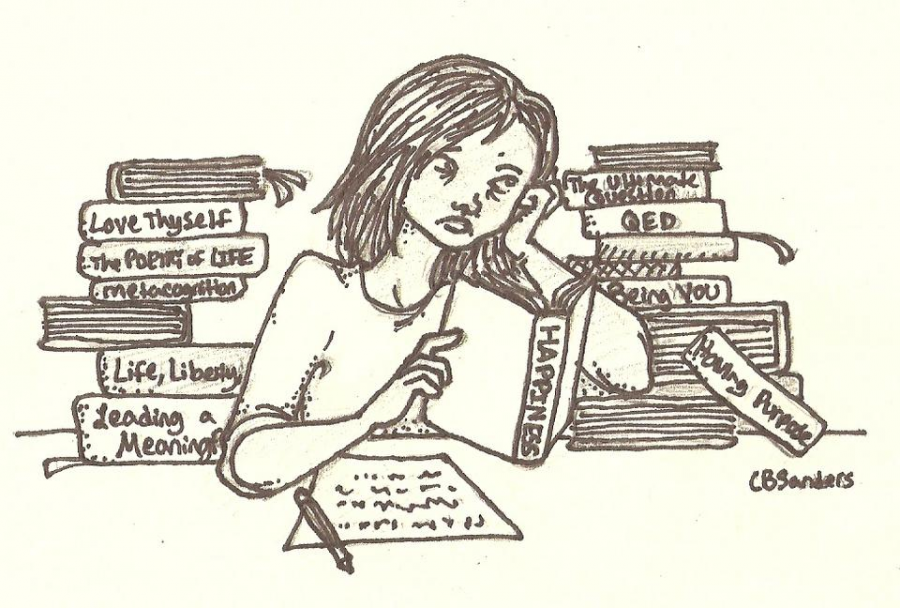Why Smart People Are Sad
Does the amount of knowledge you have affect your overall mental health?
The explanation as to why the intelligent suffer from more mental illnesses is complex.
November 18, 2020
The term “ignorance is bliss,” has been around for years, but how can it relate to everyday life? The term is basically saying that the more ignorant you are, the happier you tend to be. This can explain why little kids seem to enjoy life so much, since they don’t have a good understanding of the world and how it works, they don’t see all the problems with it. But since people with less knowledge are happier, does that mean more intelligent people are more sad?
Almost my entire life, I’ve heard the phrase “old soul,” thrown around a lot, especially to people on the internet. Being an old soul tends to mean you have a more natural understanding of the world. But being smart is a lot more than just taking a bunch of advanced classes, but more about emotional maturity and one’s understanding of the world. One good reason for this is because smart people know that they don’t know everything, says Medium. This can cause setting higher expectations for themselves, as well as society as a whole. The more brilliant you are, the more people such as parents and teachers expect from you. If an above average intelligent person makes a mark that’s average to below average, this can bring their whole world down. As Bertrand Rusell said, “the trouble with the world is that the stupid are cocksure, and the intelligent are filled with doubt.”
Another reason why smart people can be less joyous is because the higher your IQ and understanding the world around you, the more likely you are to develop a mental/learning disorder, says Big Think. The reason for this is because if someone is able to depict everything wrong with the world, they can see it in a completely different light than people with lower to average intelligence. People with higher intelligence than average are 83% more likely to have anxiety, and people with ADHD are 80% more likely to be more intelligent. Because of this constant need for stimulation and the repeating idea that you need to find something bad in everything to outrule the good can make life more exhausting.
A third reason why people higher in intelligence can be more likely to experience mental illness is because of their love for arguing, need to always be correct, and their increase of insecurity. When you’re smart, you tend to have two issues: you either want to cover up your intelligence and act dumb for public approval, or you want to constantly show off your wits. Being the kind of person who feels the need to hide themselves can cause you to think lower of yourself and have a decrease in self-esteem, says Exploring your mind. On the other hand, if you like to constantly show off your wits like a neon sign, this can cause people to question you and challenge your brain. Smart people tend to be very argumentative, says Business Insider, and this can cause a need to always be right. Because of this, more intelligent people develop the traits of not being able to handle failure and constantly questioning everything, including themselves.
Being considered “smarter,” than the average person can have its benefits, but it also can have its downsides. Although intelligence is measured in lots of different ways (IQ scores, test scores, street smarts, etc.), the word is constantly evolving. Although people with a higher understanding can be more sad, that doesn’t mean that intelligence levels can affect all people’s mental health.









